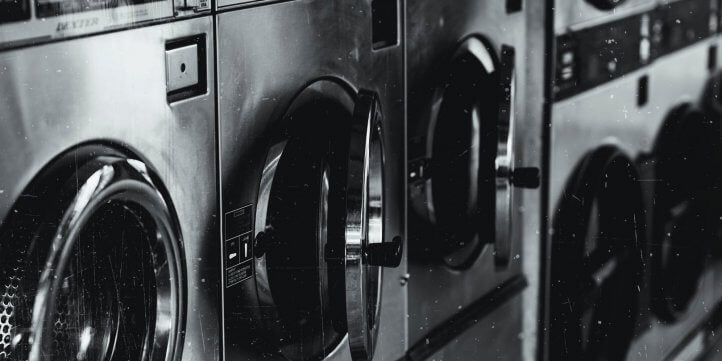Laundry & Coronavirus… What do we Know?

Despite best efforts to learn more about the 2019 novel coronavirus in a bid to improve the efficacy of testing, tracking, and treatment, many characteristics of SARS-CoV-2 still remain unknown. One of the biggest unknowns today is whether COVID-19 can survive on fomites; objects such as surfaces and clothing that can transfer disease upon touch.
Can COVID-19 Survive on Clothing?
Previous studies into rhinoviruses such as the common cold suggest that transfer to clothing is rare. One study looked at viral samples on teacher clothing and found that, across 313 days, samples on clothing were discovered on just 16 days. But what about coronaviruses? Some recent studies have put forward the idea that COVID-19 can survive on surfaces for between 4 and 6 days, although researchers have questioned the viability of these results due to the large viral sample used. Most studies suggest that COVID-19 can survive on surfaces for up to 6 hours, depending on the type of material.
However, as the virus has been shown to act in unpredictable ways, it is vital to ensure that clothing is being washed correctly after exposure to areas where COVID-19 may be present or where social distancing cannot be maintained. This includes healthcare settings, work sites, hospitality venues, enclosed warehouses, and laboratories. And it’s especially important for PPE which would usually be re-worn for work without washing.
Washing PPE During the Pandemic
According to Public Health England, for those working in non-healthcare settings there is no need to perform any additional laundry duties, with official advice to wash clothing ‘in accordance with the manufacturer’s instructions’. However, to minimise risk, further advice has been provided by the World Health Organization and the Centers for Disease Control in the United States. These organisations suggest washing clothing at a temperature between 60 and 90 degrees Celsius, never shaking dirty laundry, and wearing disposable gloves when handling unwashed clothing. It is also recommended to disinfect laundry baskets using products with active ingredients such as ammonium, phenolic, and hydrogen peroxide which can be effective against viral pathogens.
What Does COVID-19 Mean for PPE? At Wearwell, our experts say that “the best advice we can give is the gentler the better when it comes to PPE”. That’s because some materials, particularly reflective and hi-vis clothing, can become damaged through frequent washing cycles and harsh detergents. We also believe that non-daily washing is one of the 5 most important habits for keeping your PPE in top condition. However, during the pandemic, it is clear that workwear may need to be washed more, highlighting the importance – now more than ever – of selecting the highest quality workwear and personal protective equipment that can withstand the additional pressures of the ‘new normal’.





